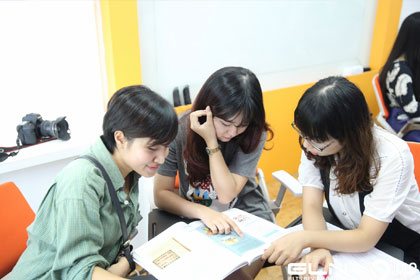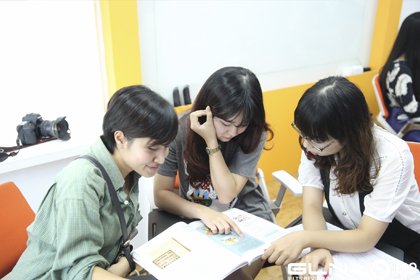Trong IELTS Speaking Part 2, bạn sẽ được xem một số hướng dẫn trên thẻ chủ đề. Bạn có một phút để đọc hướng dẫn và chuẩn bị câu trả lời. Sau đó, bạn phải nói trong một đến hai phút về chủ đề đó. Hôm nay chúng ta sẽ xem xét ba câu hỏi ví dụ. Mỗi câu hỏi sử dụng một thì khác nhau: một sự kiện trong quá khứ, một hiện tại và một sự kiện trong tương lai. Hãy thử tự trả lời những câu hỏi này trước rồi so sánh các câu trả lời mẫu bên dưới với câu trả lời của chính bạn.
IELTS Speaking Part 2: Câu hỏi ôn tập
For each question, you have one minute to prepare your answer, and you should then speak for one to two minutes.
Question 1
Describe a major decision you have taken in your life.
You should say:
– What the decision was
– What other choices were available to you
– Why you made the decision you did
And explain if you think the decision was a good one.
Question 2
Describe something you do to forget about work or study.
You should say:
– What the activity is
– How often you do it
– How it helps you forget
And say whether you would recommend other people try the same thing.
Question 3
Describe a language you would like to learn.
You should say:
– What the language is
– Where it is spoken
– Why you are interested in this language
And say if you think you will ever actually have the chance to learn it.
IELTS Speaking Part 2: Câu trả lời mẫu và phân tích
Question 1
Describe a major decision you have taken in your life.
You should say:
– What the decision was
– What other choices were available to you
– Why you made the decision you did
And explain if you think the decision was a good one.
A really important decision I’ve made recently is to study abroad, which is the reason I’m here talking to you now. No-one from my family has ever had the chance to study abroad before. My parents were actually hoping I’d start working for our family textile business as soon as I graduate. I think it’s too soon to join the family business though. I really want to study marketing – especially fashion marketing – and English so I can sell our company products to buyers all over the world. If I study fashion marketing in the UK, I can learn how to do business in the fashion industry, which is of course very competitive and fast-moving. As for whether it was the right decision, I’m pretty confident it was and I can’t change my mind now anyway because I borrowed money from my parents to pay for my tuition. I’m going to do my best to finish my course and I will go back to my country with new ideas that will help expand our business. All I need now is to get a good score in IELTS. So, anyway, that’s an important decision in my life.
Giống như nhiều câu hỏi trong IELTS Speaking Part 2, câu hỏi này đề cập đến một sự kiện hoặc hành động trong quá khứ. Tuy nhiên, có một sự chuyển đổi sang hiện tại khi ứng viên được yêu cầu suy nghĩ về quyết định.
Thí sinh IELTS này đạt điểm cao bởi:
- Đi thẳng vào vấn đề và nói quyết định của mình ngay từ câu đầu tiên
- Paraphrasing chủ đề: A really important decision
- Dùng đa dạng các thì– past simple, present simple and present perfect – chính xác.
- Sử dụng một loạt các hình thức ngữ pháp như: conditional sentence (If I…) and a cleft sentence (All I need now is…)
- Signalling parts of the question: As for whether it was the right decision…
- Tránh hình thức quá mức và sử dụng các biểu thức như actually và pretty phù hợp với phong cách đàm thoại
- Cung cấp một câu tóm tắt để kết thúc câu trả lời.
Question 2
Describe something you do to forget about work or study.
You should say:
– What the activity is
– How often you do it
– How it helps you forget
And say whether you would recommend other people try the same thing.
I’d like to talk about horse-riding, which has been my hobby since I was around ten years old. I’m actually the joint owner of a horse with two of my friends and we take turns looking after him, cleaning out the stable and so on. I don’t have a part-time job so I spend most of my weekends at the stable. Taking care of a horse is quite a dirty business so it’s obviously very different from studying at college. That means I can forget about my classes during the week when I’m at the stable on the weekend. There’s quite a large field next to the stable and I just get a wonderful sense of freedom when I’m riding around on my horse. College seems a million miles away! Do I think other people would enjoy horse-riding? Yes, absolutely. I think everyone should give it a try. Horses are absolutely wonderful animals, very gentle and intelligent. If you ever have the chance to ride a horse, you should definitely give it a try.
Đây là một câu hỏi khó hơn nhiều vì các từ work và study trong câu đầu tiên có thể khiến một số thí sinh IELTS nói về một trong hai chủ đề đó. Trên thực tế, bạn nên nói về một số loại hoặc hoạt động giải trí hoặc hình thức thư giãn khác giúp bạn quên đi công việc hoặc học tập.
Thí sinh IELTS này đạt điểm cao bởi:
- Thể hiện sự hiểu biết rõ ràng về câu hỏi
- Đi thẳng vào vấn đề bằng cách đề cập đến activity trong câu đầu tiên
- Sử dụng thì hiện tại đơn để thể hiện đó là hoạt động hằng ngày
- Bám sát vào câu hỏi mặc dù chủ đề có thể là một chủ đề rất thú vị để nói về
- Sử dụng câu hỏi tu từ để chuyển từ phần này sang phần khác của câu hỏi: Do I think…?
- Kết thúc bằng một câu kết luận rõ ràng, trong trường hợp này là một lời đề nghị
Question 3
Describe a language you would like to learn.
You should say:
– What the language is
– Where it is spoken
– Why you are interested in this language
And say if you think you will ever actually have the chance to learn it.
Let me tell you about a language I’ve always wanted to learn, which is Russian. It’s spoken in Russia, obviously, but also in many other countries which have been influenced by Russia including places like Mongolia and Kazakhstan. It’s quite a difficult language to learn because the alphabet is not the Roman one, which means that you have to learn to read and write from scratch, a but like studying Chinese or Japanese. Well, the reason I would like to learn Russian is that the energy industry is huge and there are lots of jobs. A lot of my country’s oil and gas comes from Russia so it’s really useful to be able to speak that language if you want to work in the energy field. I have actually been to Russia before so I know from experience that a lot of Russians can’t speak English very well, so that’s another good reason to learn their language. The only problem is I’m already thirty years old and I’ve spent more than fifteen years learning English. I don’t know if I would ever be able to learn Russian successfully because it’s a difficult language for anyone to learn, especially someone older like me. But it would be really great to try.
Một vấn đề mà các thí sinh IELTS gặp phải với các câu hỏi giả định như câu hỏi này là họ không nhận ra chúng là giả thuyết. Vì các ứng viên đã học tiếng Anh, họ nên nói về một ngôn ngữ khác không phải là tiếng Anh cũng như ngôn ngữ đầu tiên của họ. Điều này có thể thực tế (ví dụ: tiếng Tây Ban Nha) hoặc không thực tế (ví dụ: tiếng Hy Lạp cổ đại). Nó không quan trọng miễn là ngôn ngữ đó không phải là ngôn ngữ bạn đang học.
Thí sinh IELTS này đạt điểm cao bởi:
- Bắt đầu bằng một câu tác động: Let me tell you about…
- Sử dụng would để chỉ ra rằng câu trả lời là giả thuyết
- Signalling parts of the question: The reason I would like to learn Russian is…
- Sử dụng các liên kết tham khảo để tránh lạm dụng từ chủ đề 'tiếng Nga': that language; their language; it
- Đưa ra nhiều hơn một lý do
- Quay trở lại điểm chính của câu hỏi trong câu cuối cùng






















